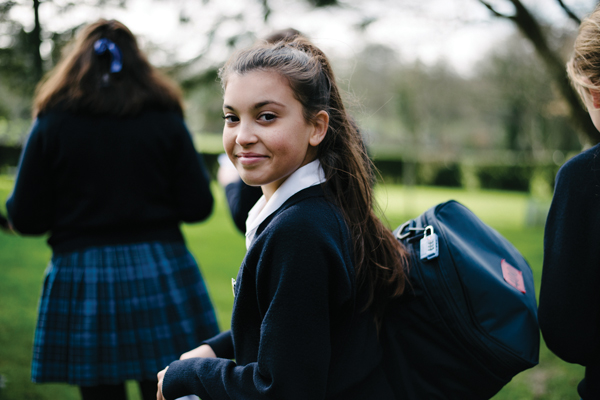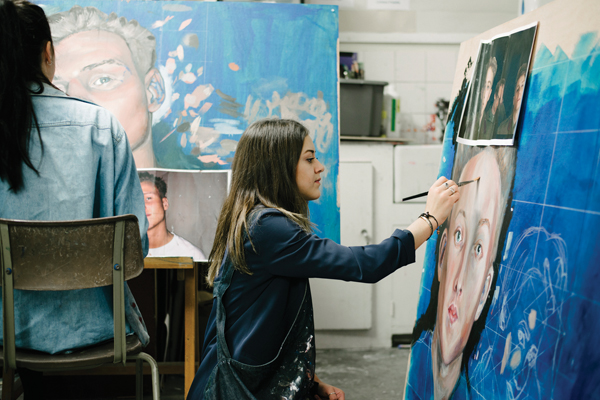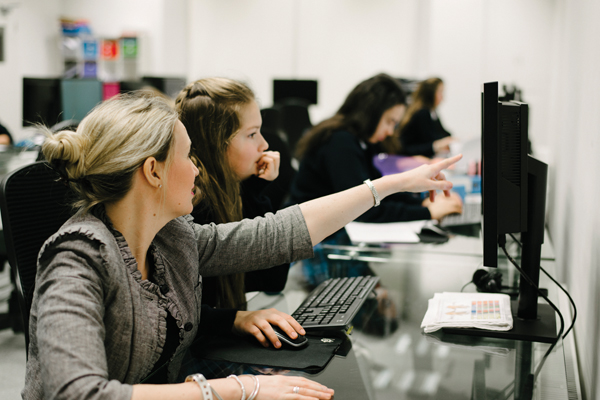
Expanding horizons beyond the core curriculum: a right not an expensive luxury
Education funding cuts are a hot topic at the moment. It seems every time we look at the news, there are bleak headlines about the possibility of Grammar Schools introducing means-tested fees, and tough decisions are being made about which subjects state schools can afford to offer, and which they are being forced to drop.
Heads are having to focus on the core compulsory subjectswith resources being directed towards boosting league table results.Of course literacy, numeracy and the sciences are vital, but with access to the creative and performing arts, languages and humanities becoming a lottery for many students across the country, we are on a dangerous path.

Variety and choice within the curriculum is fundamental to providing a thorough and balanced education that expands a child’s horizons and produces young people with the resilience, confidence and integrity to navigate the challenges they face in the modern world. At Mayfield School we strongly believe in the benefits of studying a broad range of subjects. The term ‘humanities’ provides a clue as to the many rewards that studying History, Geography, Philosophy, Psychology, R.S, Classics and Politics bring. These subjectshelp our children to learn how to be human, instilling an understanding of ethics, values and culture that is an essential element of education.

The humanities afford an opportunity for students to develop their own considered opinions on some of the most important areas of life, helping them to clarify their beliefs and values.We live in societies made up of real people, who have been shaped by past events and individuals: communities follow traditions that have been passed down through the generations, and every day we depend on technologies, ideas and innovations that have been developed, by other people, for us. Studying the humanities also teaches research and problem solving skills, the capacity to summarise and critique texts, and the ability to clearly and creatively debate and present information –skills that are extremely attractive to universities and employers, but should not be the sole reason for learning them.

Ever-increasing globalisationamplifies the importance of studying languages. Proficiency in French, Spanish and the other modern languages opens the door to living and working abroad, and to a plethora of careers across all sectors in multinational companies where language skills are required. However, it is though the literature and art that one really begins to comprehend another culture: insight into experiences and perspectivesfosters understanding and tolerance. Even if students choose to drop languages after their GCSEs, they will have learnt the discipline, dedication and confidence required to communicate with other people (no matter how tentatively) and so to begin to build links and relationshipsthat may be useful both professionally and personally throughout their lives.
At Mayfield we believe the creative and performing arts have an extremely positive impact on physical and mental well-being, inspiring pupils and allowing them to use their imaginations while they take a break from their academic pursuits. Whether a student intends to pursue music, drama, textiles, ceramics or art as a career, or whether it is just for fun and relaxation, it is vital these subjects are available to students at secondary level, and that they are encouraged to take part. Who knows where it may lead them? The more a curriculum is restricted, the more stifled creativity becomes and we risk depriving children of essential life skills, and of narrowing their horizons.
The benefits of singing, playing music or performing on stage (no matter how nerve-wracking it may seem initially) are vast: from boosting self-confidence, to teaching the discipline that is required to learn lines or music. Commitment, attention to detail, critical analysis and patience are required to succeed. These skills are eminently transferrable and cross-curricular links between the arts and those subjects considered more traditionally academic are hugely valuable, not least in providing contextual detail and background information to enrich learning: the bigger picture!
A future in which these subjects are not available to pupils is an alarming one, and one that many parents in the state sector are increasingly facing. We want our girls to leave Mayfield with an excellent understanding of the past, not least in how that informs the skills they need to thrive in the future as a proactive member of a modern society. Abstract and creative intellectual curiosity is important, but must be tempered by understanding of and compassion for themselves and others: that is exactly what we are giving them.In our increasingly global existence, this combination of skills couldn’t be more important, but cannot be measured by a written examination, or passively learnt!
League tables, funding cuts and ever-changing attainment goals have created an educational landscape in which the state sector is being directed to focus on the traditional ‘core’ subjects, to the disadvantage of those children and parents who are looking for a broader educational experience. Everyone should be able to benefit from an education that inspires creativity and critical thinking; that encourages commitment and self-confidence;that helps children learn about and prepare for the world around them. This is the educational experience that is a fundamental way of life to all of us at Mayfield.
Antonia Beary is Headmistress at Mayfield School, a leading Catholic independent boarding and day school for girls aged 11 to 18. She is also currently Chair of CISC and Hon Sec of GSA.
01435 874642. registrar@mayfieldgirls.org
Mayfield School, The Old Palace, Mayfield, East Sussex TN20 6PH
www.mayfieldgirls.org